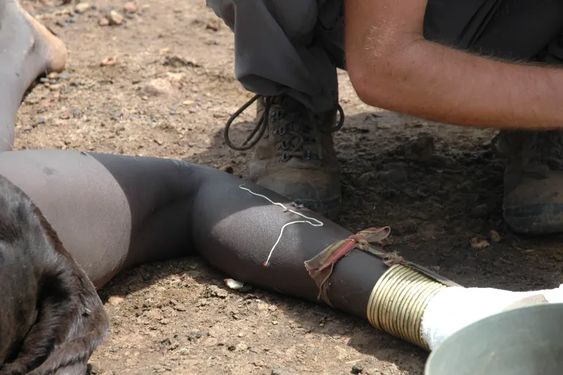Health
“Final mile” of the fight against Guinea worm illness has begun

The last few years of the eradication campaign, which is being coordinated by the US Carter Center, will be the “most difficult,” according to experts.
According to the Carter Center in the United States, there were just 13 human cases of Guinea worm sickness reported globally last year.
Adam Weiss, head of The Carter Center’s Guinea Worm Eradication Program, warned that despite decades of progress, the next stage of the global campaign to eradicate the parasitic disease will be “the most difficult.”
The 13 cases, which happened in four countries in sub-Saharan Africa, were reported on Tuesday by the Atlanta-based centre, which was established by former US President Jimmy Carter and his wife Eleanor Rosalynn Carter. In addition to the Central African Republic, which is still under investigation, there were reports of six human cases in Chad, five in South Sudan, one in Ethiopia, and five in Chad.
That represents a remarkable decline from 1986, when 3.5 million people were afflicted and former President Carter, then 98, started leading the global eradication effort.
The tentative numbers are anticipated to be verified in the upcoming months.
READ ALSO: Poland puts more pressure on Germany to provide tanks to Ukraine
Weiss told The Associated Press, “We are genuinely in the middle of that last mile and seeing directly that it is going to be a very long and gruelling last mile.” “I just know it’s going to be a long roll to get to zero,” she said. “Not so much that it takes more than the next seven years—five to seven years.”
Some of the most vulnerable individuals in the world are impacted by Guinea worm, which can be avoided by teaching people to filter and drink clean water.
Parasites that can reach a length of one metre can be consumed by people who drink contaminated water (3 feet). Before painfully emerging via the feet or other sensitive areas of the body, the worm can incubate in people for up to a year.
Weiss noted that local insecurity, including war, can prohibit professionals and volunteers from visiting homes to carry out interventions or provide support in the populations where Guinea worm still occurs.
There’s little doubt that the Guinea worm population will increase if we stop attempting to hasten reaching zero and give support to those communities, according to Weiss. Even though it is not happening as quickly as we would all like, progress is still being made.
Guinea worm is on track to become the second human disease to be eradicated after smallpox, according to The Carter Center.
The Associated Press is the source.
